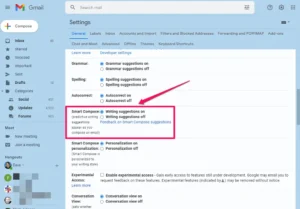Google Ads has revolutionized online advertising, offering businesses an effective way to reach their target audience and drive conversions. To harness the full potential of Google Ads, advertisers must understand and apply its core principles effectively. In this article, we delve into three fundamental principles that underpin successful Google Ads campaigns.
Understanding Google Ads
What are Google Ads?
Google Ads, formerly known as Google AdWords, is an online advertising platform developed by Google. It enables businesses to display ads on Google’s search engine results pages (SERPs), websites within the Google Display Network, and other Google properties.
How does Google Ads work?
Google Ads operates on a pay-per-click (PPC) model, where advertisers bid on keywords relevant to their business to have their ads displayed to users searching for those keywords. Advertisers only pay when someone clicks on their ad, making it a cost-effective advertising solution.
Also Read: Northwestern University: Elevating Education, Enriching Minds
Core Principles of Google Ads
Relevance
Importance of relevance in Google Ads
Relevance is paramount in Google Ads. Ads that are relevant to users’ search queries are more likely to be clicked on, resulting in higher click-through rates (CTR) and improved ad performance. Google rewards relevant ads by giving them higher ad placements and lower costs per click (CPC).
Crafting targeted keywords
To ensure relevance, advertisers must carefully select keywords that accurately reflect their products or services and match the intent of their target audience. Keyword research tools and analyzing search query data can help identify relevant keywords with high search volume and low competition.
Tailoring ad copy to match user intent
In addition to choosing the right keywords, crafting compelling ad copy that resonates with users’ search intent is crucial. Advertisers should address the needs and pain points of their target audience in their ad copy, offering solutions and benefits that encourage clicks and conversions.
Quality Score
What is Quality Score?
Quality Score is a metric used by Google to measure the relevance and quality of ads, keywords, and landing pages. It plays a significant role in determining ad rank and CPC within Google Ads auctions. A higher Quality Score can lead to better ad positions and lower advertising costs.
Factors affecting Quality Score
Quality Score is influenced by several factors, including ad relevance, expected click-through rate (CTR), ad copy quality, landing page experience, and historical performance. Advertisers should focus on optimizing these elements to improve their Quality Score and ad performance.
Strategies to improve Quality Score
To improve Quality Score, advertisers should regularly review and optimize their ad campaigns. This includes refining keyword targeting, creating compelling ad copy, optimizing landing pages for user experience, and monitoring campaign performance metrics. By continuously optimizing their campaigns, advertisers can increase their Quality Score and maximize the effectiveness of their Google Ads.

Bidding Strategy
Understanding bidding in Google Ads
Bidding is the process of determining how much an advertiser is willing to pay for a click on their ad. Google Ads offers various bidding strategies, including manual bidding, automated bidding, and target return on ad spend (ROAS). Each strategy has its pros and cons, depending on the advertiser’s goals and budget.
Types of bidding strategies
Manual bidding allows advertisers to set their bids manually for greater control over their campaign budgets and keyword bids. Automated bidding, on the other hand, uses machine learning algorithms to adjust bids automatically based on performance data and campaign objectives. Target ROAS bidding focuses on achieving a specific return on ad spend set by the advertiser.
Choosing the right bidding strategy
Selecting the right bidding strategy depends on factors such as campaign goals, budget, and level of expertise. Advertisers should experiment with different bidding strategies and monitor their performance closely to determine which strategy yields the best results for their business objectives.
Also Read: Dallas 18-Wheeler Accident Law Firm: Seeking Justice and Compensation
Conclusion
Mastering the core principles of Google Ads is essential for running successful advertising campaigns. By prioritizing relevance, optimizing Quality Score, and implementing effective bidding strategies, advertisers can maximize their ROI and achieve their marketing goals on the Google Ads platform.
FAQs
- What is the difference between Google Ads and organic search results? Google Ads are paid advertisements that appear at the top and bottom of search engine results pages, marked with an “Ad” label, while organic search results are unpaid listings generated by Google’s algorithm based on relevance and authority.
- How does Google determine ad rank in Google Ads auctions? Google uses a combination of factors, including bid amount, ad quality, and ad relevance, to determine ad rank in Google Ads auctions. Higher-ranked ads are more likely to be displayed in prominent positions on search engine results pages.
- Can I run Google Ads campaigns on a limited budget? Yes, Google Ads allows advertisers to set daily budgets and control their advertising costs. Advertisers can adjust their bids and targeting settings to optimize their campaigns for maximum results within their budget constraints.
- What is the importance of conversion tracking in Google Ads? Conversion tracking allows advertisers to measure the effectiveness of their Google Ads campaigns by tracking actions such as website visits, form submissions, and purchases. It provides valuable insights into campaign performance and helps optimize advertising strategies for better results.
- Are there any restrictions on the types of businesses that can advertise on Google Ads? Google Ads has policies in place to ensure a positive user experience and prohibit certain types of content, such as illegal products or services, misleading ads, and deceptive practices. Advertisers must comply with Google’s advertising policies to run ads on the platform.




